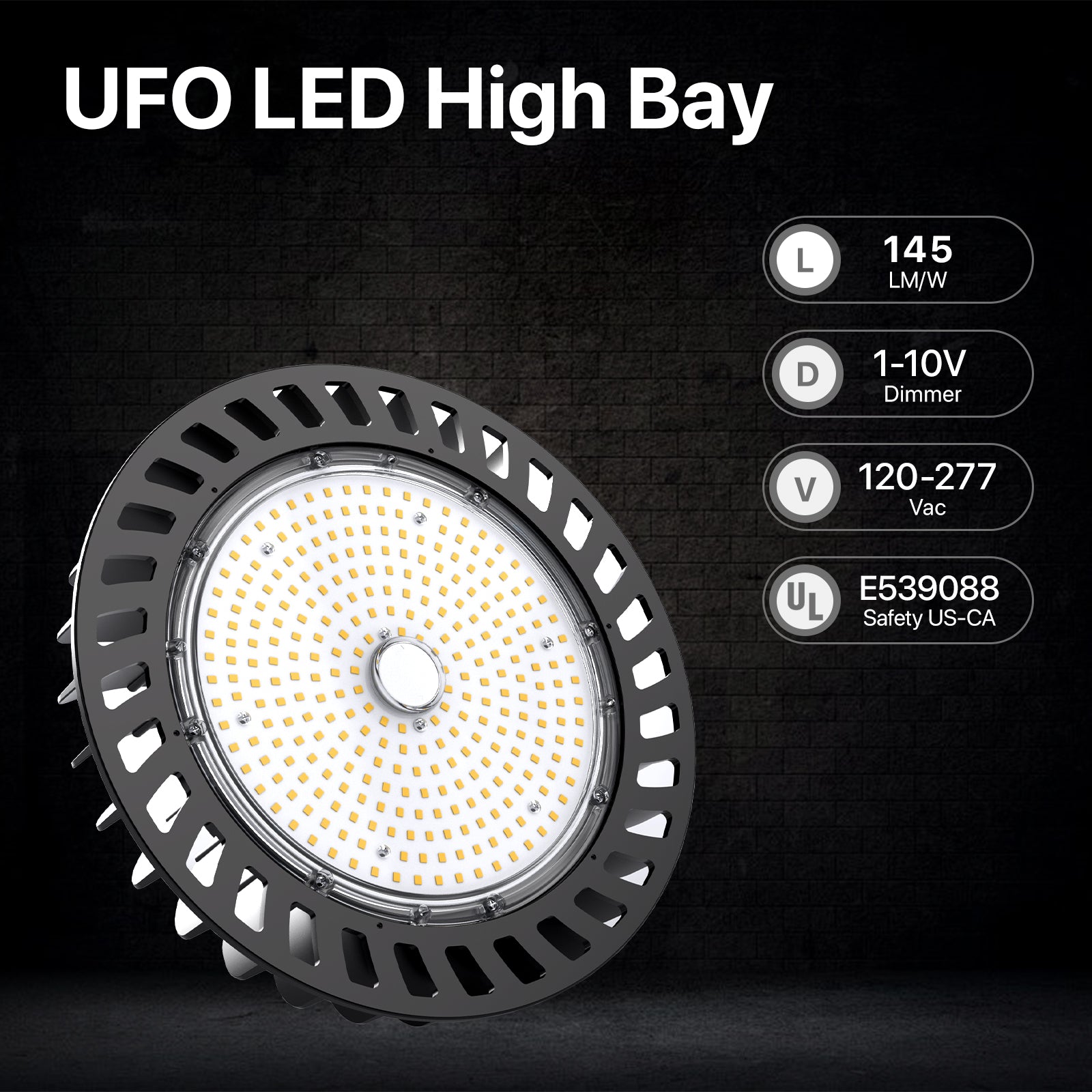Illuminate Your Space: Discover the Ultimate High Bay LED Lighting Solution!
When it comes to illuminating large commercial spaces, the choice of lighting is crucial. High bay LED lights have emerged as a popular solution for businesses looking to enhance visibility while minimizing energy costs. These lights are specifically designed for areas with high ceilings, such as warehouses, manufacturing plants, and retail spaces. The trend towards LED lighting is driven not only by the need for brighter and more efficient lighting but also by the growing awareness of sustainability and energy conservation. As more businesses turn to LED technology, the advantages of high bay LED lights are becoming increasingly clear, making them a worthy consideration for anyone looking to upgrade their lighting system.

Understanding High Bay LED Lights
High bay LED lights, as the name suggests, are designed for installation in high-ceilinged spaces, typically ranging from 15 to 50 feet above the floor. These fixtures are characterized by their powerful illumination capabilities and wide beam angles, allowing them to cover large areas effectively. The design of high bay LED lights often includes durable materials that can withstand the rigors of industrial environments. They come in various shapes and sizes, including UFO-style and linear options, catering to different lighting needs and aesthetic preferences. Common applications include warehouses, gymnasiums, factories, and retail environments, where bright, efficient lighting is essential for safety and productivity. A friend of mine recently renovated his warehouse and opted for high bay LEDs; he was amazed at how much brighter and inviting the space became.
Benefits of High Bay LED Lights for Commercial Use
The advantages of using high bay LED lights in commercial settings are numerous. First and foremost, they are incredibly energy-efficient, consuming significantly less power than traditional incandescent or fluorescent lights. This efficiency translates to lower electricity bills, which can be crucial for businesses operating on tight budgets. Additionally, high bay LEDs have an impressive lifespan, often lasting up to 50,000 hours or more, which means less frequent replacements and reduced maintenance costs. Another benefit is the quality of light produced; high bay LEDs offer bright, clear illumination that enhances visibility and safety. This improved lighting can lead to increased productivity, as employees can work more effectively in well-lit environments. A colleague shared how switching to high bay LEDs in their manufacturing plant not only cut costs but also boosted employee morale thanks to the well-lit workspace.
Factors to Consider When Choosing High Bay LED Lights
When selecting the right high bay LED lights for your commercial space, several critical factors should be taken into account. First, consider the lumen output, as it indicates the brightness of the light; higher lumens are necessary for larger spaces. Next, the beam angle is important; a narrow beam is suitable for targeted lighting, while a wider beam is ideal for general illumination. Color temperature is another aspect to consider; warmer tones create a cozy atmosphere, while cooler tones provide a more industrial feel. Lastly, installation requirements should be assessed, as some fixtures may need professional installation, especially if they are hardwired. A friend who owns a large retail store emphasized the importance of getting the right lumen output to ensure that every corner of the store is adequately lit and inviting.
Installation and Maintenance of High Bay LED Lights
Installing high bay LED lights can be a straightforward process, especially for those who opt for plug-and-play models. However, for more extensive setups or hardwired installations, it may be beneficial to hire a professional electrician. Before installation, ensure that you have the necessary mounting hardware and follow the manufacturer's instructions carefully. Regular maintenance is also essential to ensure the longevity and effectiveness of your lighting system. This includes cleaning the fixtures to remove dust and debris, which can diminish light output, as well as checking for any signs of wear or damage. A maintenance routine can help catch potential issues early, allowing you to address them before they become significant problems. A business owner I know mentioned how regular maintenance on their high bay lights led to sustained performance and significant cost savings over time.
Key Takeaways on High Bay LED Lights
In conclusion, high bay LED lights present an excellent lighting solution for commercial spaces, offering significant benefits in terms of energy efficiency, longevity, and quality of illumination. By understanding their design, advantages, and the factors to consider when selecting and installing them, businesses can make informed decisions that enhance their environments while reducing operational costs. As you explore options for improving your commercial lighting, high bay LED lights should undoubtedly be on your radar, promising to illuminate your space effectively and sustainably.








